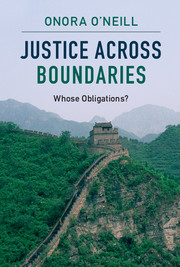1 - Lifeboat Earth
from Part I - HUNGER ACROSS BOUNDARIES
Published online by Cambridge University Press: 05 February 2016
Summary
If in the fairly near future millions of people die of starvation, will those who survive be in any way to blame for those deaths? Is there anything which people ought to do now, and from now on, if they are to be able to avoid responsibility for unjustifiable deaths in famine years? I shall argue from the assumption that persons have a right not to be killed unjustifiably to the claim that we have a duty to try to prevent and postpone famine deaths. A corollary of this claim is that if we do nothing we shall bear some blame for some deaths.
Justifiable killing
I shall assume that persons have a right not to be killed and a corresponding duty not to kill. I shall make no assumptions about the other rights persons may have. In particular, I shall not assume that persons have a right not to be allowed to die by those who could prevent it or a duty to prevent others’ deaths whenever they could do so. Nor will I assume that persons lack this right.
Even if persons have no rights other than a right not to be killed, this right can justifiably be overridden in certain circumstances. Not all killings are unjustifiable. I shall be particularly concerned with two sorts of circumstances in which the right not to be killed is justifiably overridden. The first of these is the case of unavoidable killings; the second is the case of self-defence.
Unavoidable killings occur in situations where a person doing some act causes some death or deaths which he could not avoid. Often such deaths will be unavoidable because of the killer's ignorance of some relevant circumstance at the time of his decision to act. If B is driving a train, and A blunders onto the track and is either unnoticed by B or noticed too late for B to stop the train, and B kills A, then B could not have avoided killing A, given his decision to drive the train. Another sort of case of unavoidable killing occurs when B could avoid killing A or could avoid killing C, but cannot avoid killing one of the two.
- Type
- Chapter
- Information
- Justice across BoundariesWhose Obligations?, pp. 13 - 28Publisher: Cambridge University PressPrint publication year: 2016

